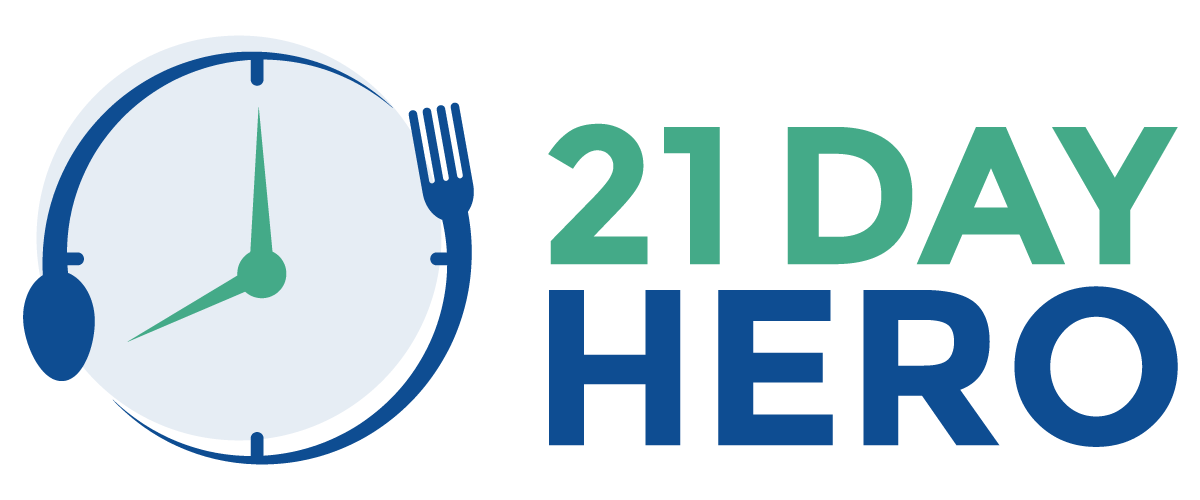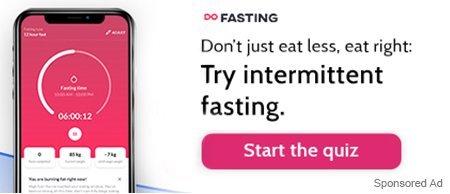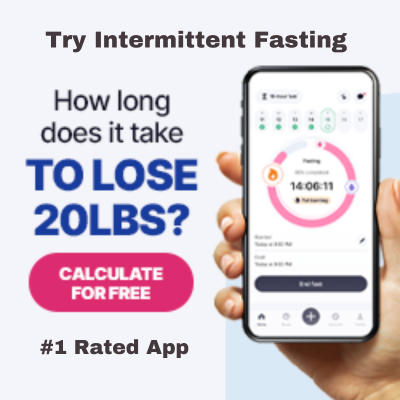6 PROS | 6 CONS
Intermittent Fasting is a rapidly rising household term in the world of diet culture.
Why wouldn’t it be? This diet promises weight loss while still being able to enjoy the foods you love. So what are the pros and cons of intermittent fasting you should be aware of before you jump right in?
Since 16/8 is the most common in the world of fasting, I’ve done the research you need to decide if this diet is right for you. Here is the ultimate list of the top pros and cons of intermittent fasting 16/8.
6 Intermittent fasting pros

Pro #1: Weight Loss
The main reason people start dieting is usually for weight loss, and this diet has some serious results!
Weight loss is most often achieved in this diet because you are less likely to overeat within a restricted eating window. This becomes easier over time, and people become more in tune with what their body actually needs. That leads to eating less from social pressure or boredom — success!
Pro #2: Increased Energy
Who doesn’t want more energy in their day? I know I could use some more natural energy and less coffee in my daily routine.
With intermittent fasting, people often find their bodies have more energy when they are not slugged down by digesting food. In fact, it was one of the top perceived fasting benefits after weight loss by participating members in our 21-day Intermittent Fasting Challenge!
Even those not practicing intermittent fasting still see the advantages of increased energy when they do “fasted cardio.” This is the practice of doing cardio at the beginning of the day before breakfast, a personal favorite!
Pro #3: Mental Clarity
Not everyone practicing fasting is looking to lose weight. Many entrepreneurs and people in the self-development community opt for fasting for its mental benefits. As Neil Patel says: Intermittent Fasting actually helps you to have more focus in the morning because your body is not wasting precious energy digesting foods.
Also, let’s remember that yogis have been using the art of fasting for centuries to elevate their meditation practices. Why not try including this in your daily routine and see if you don’t start vibrating at a higher level?
Pro #4: No Calorie Restrictions
This diet is easy compared to a lot of the other more popular diets right now, like IIFYM (If It Fits Your Macros) and other calorie or macros counting based methods. All you have to count is your eating and fasting window. Even that can be done easily thanks to many fasting apps.
With intermittent fasting, you get the advantage of being able to eat whatever you want, so long as you are eating it within your allotted 8-hour window. However, we still remind you that if your goal is to lose weight, you should be mindful of what you eat.
Pro #5: Increased Longevity and other health benefits
If the previous advantages of intermittent fasting weren’t enough, get this! Scientists are now realizing that this lifestyle could actually help you live a longer life.
Moreover, intermittent fasting is now proven to lower blood pressure and cholesterol. So, not only are you dropping pounds to fit into those jeans, it’s healing your insides too. Win-win!
Pro #6: Improved Quality of Life
So now besides living longer due to this lifestyle change, you’re also improving your quality of life.
How?
Research is showing you can reduce inflammation, and subsequent chronic diseases. Scientists say that means lowering your risk for all-too-common diseases like diabetes, cancer, heart diseases and more.
6 Intermittent fasting cons

In the second half of my list of pros and cons of intermittent fasting, I’ve covered the not-so-fun parts of this diet and who should avoid it altogether. (Hint: It’s most people who shouldn’t be doing any sort of dieting anyways.)
Con #1: Difficult To Start
Is this one too obvious? I mean in a different way than other diets.
See, you could be feeling hungry all day from unsatisfying elimination diets (Keto, Paleo, Gluten-Free, ect.) With Intermittent Fasting, you only feel hungry during your fasting window. Not to mention it is easily managed and will diminish over time.
Personally, once I got into the groove of things, I didn’t even realize my fasting window was over. As opposed to when I started and was counting down the hours till I could eat again.
Con #2: Moodiness
Oh yes. Of all the pros and cons of intermittent fasting, this has got to be the hardest one for many of us.
Why? Because some people – you may know one – just cannot skip a meal. Does the phrase “You’re not you when you’re hungry,” ring a bell? That’s because “hanger,” the feeling of being grumpy when you’re hungry, is a real thing! If this is you when you don’t eat breakfast on time, you may want to try a different route.
Con #3: Interferes with Social Life
Ok, so what do you do if you love going out for a cup of coffee and a muffin with a friend in the morning? How about a full-on brunch and mimosas? (Yes, please!)
Unfortunately, you can no longer partake. This one isn’t too difficult to work around though! You can always turn that get-together into a lunch date or plan your window around your usual social hours.
Con #4: Hard To Schedule
Some schedules are easier to work around than others. Others pose external factors that just don’t align.
For example, restaurant workers waive their right to a lunch break. When that happens, can you still work with your allotted eating window, or do you end up shuffling things too much?
If your job, or other existing commitments, leave you with too little time to eat, this may be one of the disadvantages of Intermittent fasting you just can’t work around.
Con #5: Can Be Triggering
Because this diet restricts food intake for 16 hours a day it is not recommended for people with a history of disordered eating.
While this is one of the negatives of intermittent fasting, it‘s true of any diet centering around the restriction. That means anything from calorie counting to diets that label whole food groups as ”bad.”
Con #6: Not For Growing Humans
Again, a recommendation that would be applicable to most diets. Intermittent fasting is not healthy for children and teenagers.
Researchers don’t know enough about kids and the effects of intermittent fasting. What we do know though is that what we model has a huge impact on how our kids eat later in life.
This would make it more difficult for a parent trying to teach healthy eating habits if they were unable to eat at family meals.
Now you have the facts, what will you do?
If this sounds like the right diet for you, 21DayHero has challenges and meal plans to help anyone get started. Click here to customize a diet specifically for your needs!
While there are some real disadvantages to intermittent fasting, most of them – if you don’t fall into one of those categories who should avoid this eating practice – are manageable.
There are also so many advantages outside of just trimming down on those few extra pounds. When it comes to the pros and cons of Intermittent Fasting, which ones stand out more to you?
Check out this article – When Intermittent Fasting Doesn’t Work!
Want to know what you can Drink While Fasting? What Can You Drink during Fasting Page
Need an APP on your Mobile to help with Fasting? See our Top 6 FREE and Premium Fasting Apps











